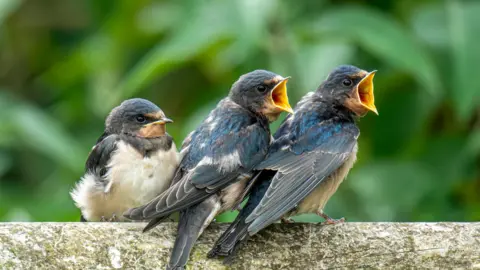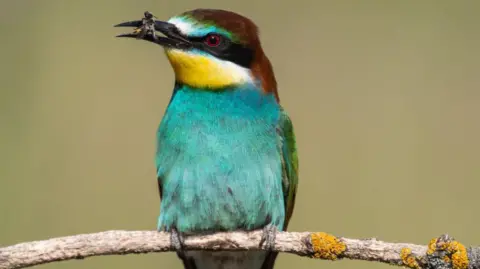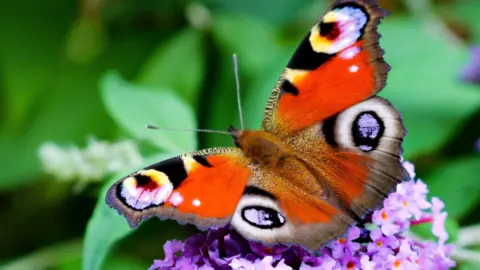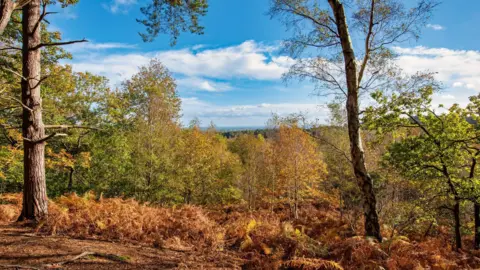
[ad_1]
 Gety pictures
Gety picturesWith what is called a miniature water wave waving on the horizon in the UK, humans not only looks at the warmer weather.
The warm talisman is expected to give a temporary batch of nature with the arrival of migratory birds from afar and the butterflies extend their wings.
British confidence of bird science (BTO) says that a series of more moderate winter and wet springs all contribute to change in the natural world.
But a short warm talisman will not make a big difference in general, and it can be a reward for nature lovers.
 Gety pictures
Gety pictures“On the positive side, the best weather is more invited to us to go out and enjoy the spring. The Fajr Choir is at its peak in the minute and calm, the warm morning is perfect for enjoying it!”
Met office says that a brief talisman of warmth at the end of April is not a bad thing for wildlife – and there should not be a major impact on water sources such as ponds.
“The climate change has already has a major impact on our wildlife, but there is a temporary edge like this is the end of the Banana April’s wildlife profits,” says Graham Madj at Met office.
He adds that the warmer weather will highlight the joys of seeing wildlife, such as butterflies and birds.
The peacock and the turtle are among the first to publish their wings, with more butterflies coming out of April on April.
Dragonflies begins at this time as well.
Summer visitors, such as Swallows and Swifts, can expect abundant food supplies, with insects on the wing.
There can also be some of the scenes of rare visitors such as The Exotic european bee-eteer, which recently started nesting in the UK.
 Gety pictures
Gety picturesCharity for wildlife says it is a great time to get out and enjoy nature, but people must be cautious against the start of fire by mistake.
Oliver Frey of Surrey Wildlife Trust says the conditions are incredibly dry on Heathlands of Surrey, creating “Tinderbox conditions”.
The flat land landscape is famous for flexibility and excuse its wildlife, including rare species such as the sand lizard, the blue butterfly studded with silver.
Earlier this month Conservatives warned Some of the rarest wildlife in the UK is “famous alive” and pushed closer to extinction after weeks of intense herbal fires.
Ann McCool, RSPB Director of Scotland, says climate change leads regular forest fires with greater intensity, especially in the spring.
“Not only is the vegetation that is destroyed by the wild,” she says. “This is an embarrassing time of the year for our original wildlife – with the nesting of birds and other animals such as amphibians and reptiles that come out of winter stillness and begin to reproduce.”
 Gety pictures
Gety picturesOn the coasts, conservative experts say there was a group of whales and dolphins close to British beaches – and although it is difficult to determine some reason, warming and climate change are working.
“Seeing whales and dolphins in the wild is always a great experience, but seeing more of them, and the unusual species around the UK coast may not be good,” says Danny Groups from the charitable whale and the memorization of the dolphin.
He adds that the heat waves and the increase in sea temperatures can cause some whales wandering away from their usual areas only to survive.

